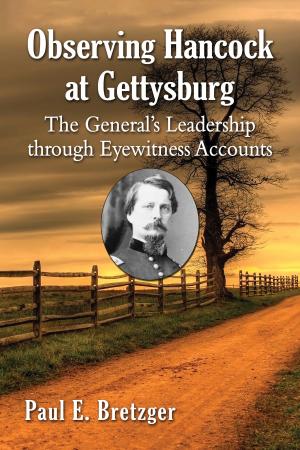Classified
A History of Secrecy in the United States Government
Nonfiction, Social & Cultural Studies, Political Science, Government, History| Author: | David B. Frost | ISBN: | 9781476629513 |
| Publisher: | McFarland & Company, Inc., Publishers | Publication: | June 19, 2017 |
| Imprint: | Language: | English |
| Author: | David B. Frost |
| ISBN: | 9781476629513 |
| Publisher: | McFarland & Company, Inc., Publishers |
| Publication: | June 19, 2017 |
| Imprint: | |
| Language: | English |
When the framers of the Constitution gathered in the summer of 1787, their deliberations were shrouded in secrecy. The Pennsylvania State House was locked, armed guards were posted and the 55 delegates of the Constitutional Convention were sworn to secrecy by presiding officer George Washington. Ordinary Americans were allowed no role in shaping the country’s national charter. Its principle architect, James Madison, believed secrecy was necessary to prevent “a thousand of erroneous and perhaps mischievous reports,” and directed that his personal notes from the Convention not be published until after his death. Secrecy has always played a role in American governance, from the First Continental Congress to the Manhattan Project to today’s controversial procedures for protecting national security. The author examines the balance between the ideal of openness in government and the real world need for secrecy, and the political accommodations that have been made for each.
When the framers of the Constitution gathered in the summer of 1787, their deliberations were shrouded in secrecy. The Pennsylvania State House was locked, armed guards were posted and the 55 delegates of the Constitutional Convention were sworn to secrecy by presiding officer George Washington. Ordinary Americans were allowed no role in shaping the country’s national charter. Its principle architect, James Madison, believed secrecy was necessary to prevent “a thousand of erroneous and perhaps mischievous reports,” and directed that his personal notes from the Convention not be published until after his death. Secrecy has always played a role in American governance, from the First Continental Congress to the Manhattan Project to today’s controversial procedures for protecting national security. The author examines the balance between the ideal of openness in government and the real world need for secrecy, and the political accommodations that have been made for each.















